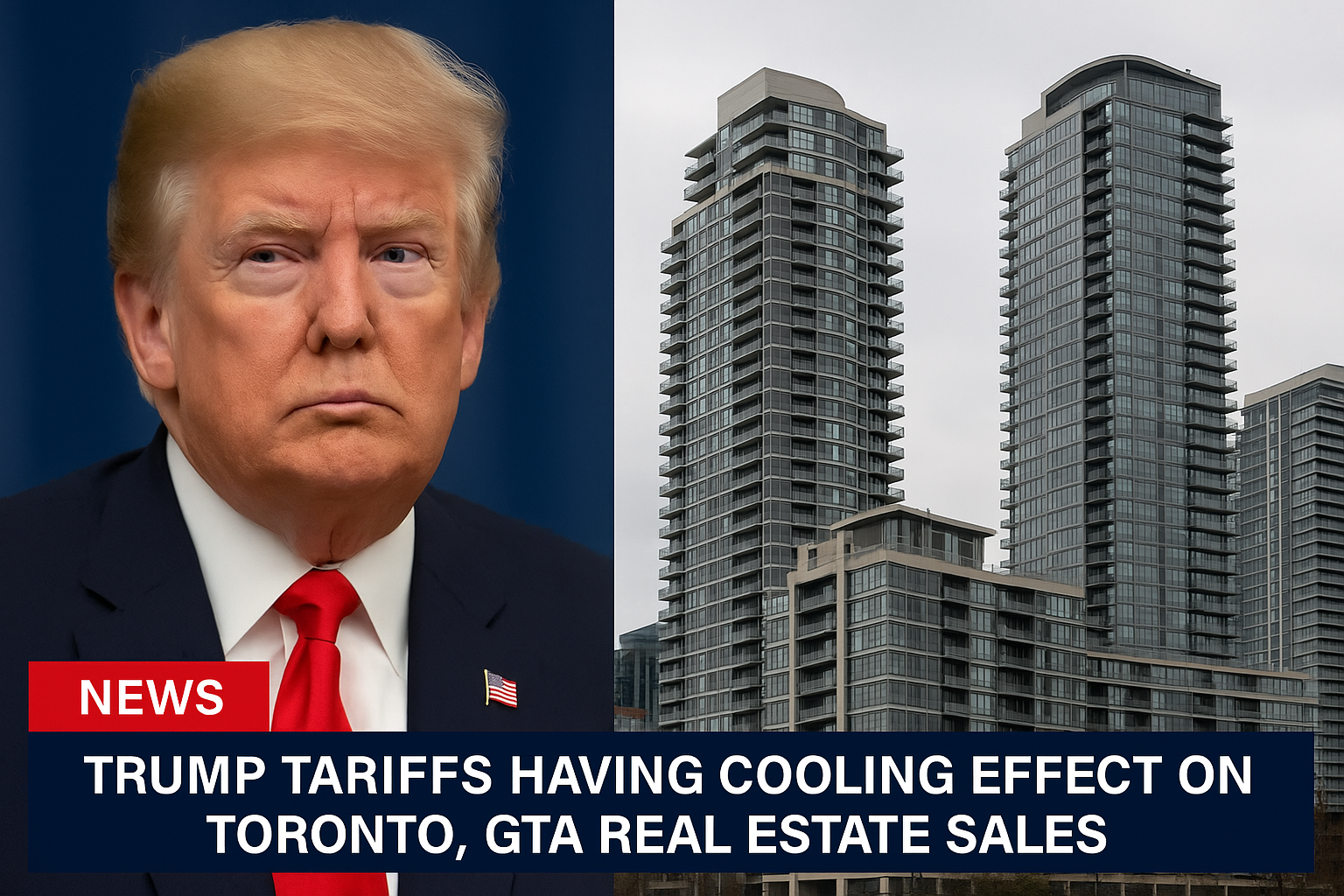the Toronto Regional Real Estate Board (TRREB). Although the market has faced challenges for years due to rising borrowing costs and ongoing affordability issues, recent trade tensions have further weakened consumer confidence and slowed home sales.
“Concerns over affordability have lingered, but home buyers are now also less confident in the economy,” noted Jason Mercer, TRREB’s chief market analyst, in the board’s latest market update. “Uncertainty about Canada’s trade relationship with the United States has likely caused some potential buyers to take a wait-and-see approach.”
In 2024, the GTA market recorded 67,610 total transactions—an improvement over 2023’s low of 65,982 sales, but still a staggering 44 percent drop from the 2021 peak. This decline preceded Trump’s imposition of tariffs on Canadian goods earlier this year. As additional tariffs are set to roll out in April, both economic uncertainty and stock market volatility have heightened on both sides of the border.
February’s numbers underscored the market’s continued struggles: Toronto and GTA sales fell to 4,037—a 28 percent year-over-year drop from the previous February’s 5,607 transactions. Average home prices have also taken a hit, declining between 7.7 and 35.1 percent across the 31 cities and towns tracked by TRREB.
Though the Bank of Canada (BoC) slashed its benchmark interest rate from a peak of 5 percent in mid-2023 to 2.75 percent this year, the measure has not yet translated into significantly increased sales or higher prices. TRREB believes that continued rate cuts combined with easing trade tensions could lead to stronger sales in the latter half of the year.
“Many GTA households are ready to buy, but current mortgage rates remain a barrier,” said TRREB president Elechia Barry-Sproule. “If borrowing costs decline further and trade uncertainty clears, we could see much stronger home sales activity.”
Still, the BoC remains cautious. In its March 26 update, the central bank acknowledged that the full impact of tariffs and trade uncertainty on inflation and domestic demand is difficult to gauge. While lower domestic demand would reduce inflation, new tariffs could stifle exports and curtail business investment. Rising costs from tariffs, a weaker Canadian dollar, and trade uncertainty could simultaneously push inflation higher.
BoC Governor Tiff Macklem warned of significant economic risks, noting that the uncertainty surrounding Trump’s tariff policies has already taken a toll. “Since President Trump began threatening a broad range of tariffs on Canadian exports, uncertainty has sharply increased,” Macklem said in a recent speech. “Depending on the scope and duration of these tariffs, the economic impact could be severe.”
With the Canadian economy caught between declining mortgage rates, affordability challenges, and escalating trade tensions, the Toronto and GTA housing market remains in a precarious position.

Leave a Reply